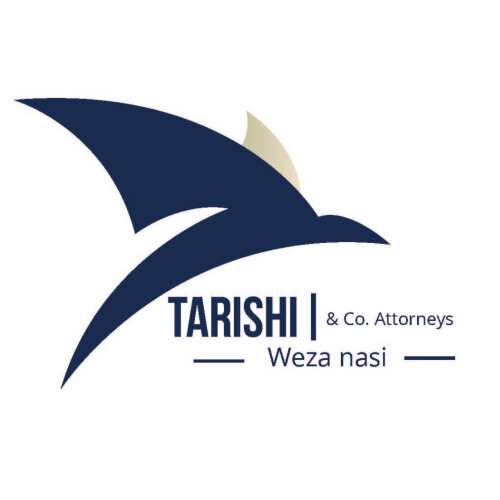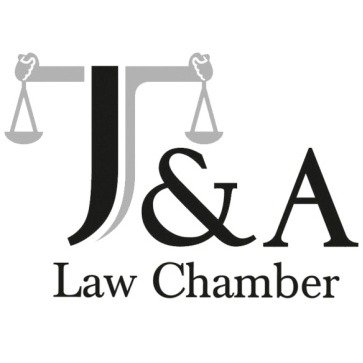Best Private Equity Lawyers in Tanzania
Share your needs with us, get contacted by law firms.
Free. Takes 2 min.
Or refine your search by selecting a city:
List of the best lawyers in Tanzania
About Private Equity Law in Tanzania
Private equity refers to investment funds that acquire equity ownership in private companies or engage in buyouts of public companies. In Tanzania, the private equity sector has been growing in recent years as the nation seeks to attract investment to drive economic growth and development, especially in key sectors like agriculture, real estate, manufacturing, and technology. Private equity in Tanzania involves the formation, structuring, management, and eventual exit of investments, typically orchestrated through formal agreements and regulatory procedures. While opportunities abound, navigating the legal landscape can be complex due to local regulations, compliance requirements, and unique business environments.
Why You May Need a Lawyer
Whether you are an investor, entrepreneur, or company executive, engaging with private equity in Tanzania often requires specialized legal expertise. Common situations where legal help is necessary include:
- Structuring or forming a private equity fund or investment vehicle
- Drafting, reviewing, and negotiating investment and shareholder agreements
- Ensuring compliance with regulatory bodies like the Tanzania Investment Centre (TIC) and the Capital Markets and Securities Authority (CMSA)
- Conducting legal due diligence on target companies
- Resolving disputes between partners, investors, or shareholders
- Managing tax issues related to private equity transactions
- Advising on exit strategies such as mergers, acquisitions, IPOs, or buyouts
Legal advice helps to prevent costly mistakes, protect your interests, ensure compliance with the law, and support successful deals.
Local Laws Overview
Private equity operations in Tanzania are governed by a variety of statutes, regulations, and guidelines. The following legal aspects are especially pertinent:
- Company Law: The Companies Act outlines rules for company formation, operation, shareholder rights, and directorship, all of which affect private equity structures.
- Investment Promotion: The Tanzania Investment Act encourages investments and offers incentives subject to compliance with specific conditions through registration with the TIC.
- Capital Markets: The Capital Markets and Securities Authority Act (CMSA) regulates public offerings, securities, and fund management, including private equity funds.
- Foreign Investment: Laws control foreign ownership and require approvals for certain sectors. These include sector-specific regulations in mining, agriculture, and telecommunications.
- Tax Laws: The Income Tax Act and Value Added Tax Act govern taxation on transactions, capital gains, and distributions. Tax incentives may be available for qualified investments.
- Labor and Employment: Compliance with Tanzania's labor and immigration laws is vital for companies with local employees or expatriates.
- Anti-Money Laundering and Anti-Corruption: Strict compliance regimes are enforced to prevent illicit financial activities and corruption.
It is important for private equity participants to understand these legal foundations and how they interact in practice.
Frequently Asked Questions
What is the typical process for making a private equity investment in Tanzania?
The process typically involves sourcing investment opportunities, performing due diligence, negotiating and signing agreements, obtaining regulatory approvals, managing the investment, and planning for an exit.
Are there restrictions on foreign investors participating in private equity in Tanzania?
Yes. While Tanzania encourages foreign investment, certain sectors have restrictions or require local participation. All foreign investments must comply with investment regulations and, in some cases, sector-specific laws.
Which government bodies regulate private equity activities in Tanzania?
The Tanzania Investment Centre (TIC) and the Capital Markets and Securities Authority (CMSA) are key regulators. Other oversight may come from sector-specific regulators such as the Bank of Tanzania.
What kind of legal structure is best for a private equity fund in Tanzania?
Common legal structures include limited liability companies and partnerships. The optimal structure depends on factors like the type of investments, investor profile, and regulatory considerations. Legal input is crucial to choosing the right structure.
What due diligence is required for private equity transactions?
Due diligence covers legal, financial, and operational aspects of the target company including verifying ownership, contracts, liabilities, compliance, and financial health.
How are exits from private equity investments typically handled?
Exits may involve selling the stake to another investor, public offerings, management buyouts, or trade sales. Each route has legal and tax implications.
Are there tax incentives for private equity investments in Tanzania?
Yes, certain investments registered through the TIC may be eligible for tax incentives and exemptions, subject to compliance with investment and tax laws.
Do shareholders in private equity deals have legal protections?
Yes. The Companies Act and shareholders agreements provide legal protections regarding voting rights, transfer of shares, dispute resolution, and more.
Is it necessary to register a private equity deal with a regulatory authority?
Most private equity deals require registration with the TIC, the CMSA, and sometimes with sector-specific regulators, depending on the nature of the investment.
What risks should investors be aware of in Tanzanian private equity?
Risks include regulatory changes, currency fluctuations, political risks, enforceability of contracts, and changes in market conditions. Legal guidance helps in identifying and managing these risks.
Additional Resources
Individuals seeking more information or legal assistance with private equity in Tanzania can consult the following resources:
- Tanzania Investment Centre (TIC): Offers information and registration services for investors
- Capital Markets and Securities Authority (CMSA): Regulates the capital markets, private equity funds, and related activities
- The Law Society of Tanzania: Directory of licensed legal practitioners
- Bank of Tanzania: Oversees financial sector regulations affecting private equity
- Ministry of Industry and Trade: Information on sectoral regulations and incentives
Professional law firms and business advisory firms with local expertise can also provide tailored advice and support.
Next Steps
If you need legal assistance in private equity matters in Tanzania, consider the following steps:
- Identify the specific aspect of private equity you need help with, such as investment structuring, compliance, or dispute resolution
- Gather all relevant documents and information about your investment or intended transaction
- Research and shortlist experienced law firms or legal practitioners specializing in private equity and investment law in Tanzania
- Schedule an initial consultation to discuss your situation and clarify legal fees and services
- Work closely with your lawyer to ensure compliance, protect your interests, and achieve your investment objectives
Seeking legal advice early can help navigate the complexities of private equity transactions and position you for success in the Tanzanian market.
Lawzana helps you find the best lawyers and law firms in Tanzania through a curated and pre-screened list of qualified legal professionals. Our platform offers rankings and detailed profiles of attorneys and law firms, allowing you to compare based on practice areas, including Private Equity, experience, and client feedback.
Each profile includes a description of the firm's areas of practice, client reviews, team members and partners, year of establishment, spoken languages, office locations, contact information, social media presence, and any published articles or resources. Most firms on our platform speak English and are experienced in both local and international legal matters.
Get a quote from top-rated law firms in Tanzania — quickly, securely, and without unnecessary hassle.
Disclaimer:
The information provided on this page is for general informational purposes only and does not constitute legal advice. While we strive to ensure the accuracy and relevance of the content, legal information may change over time, and interpretations of the law can vary. You should always consult with a qualified legal professional for advice specific to your situation.
We disclaim all liability for actions taken or not taken based on the content of this page. If you believe any information is incorrect or outdated, please contact us, and we will review and update it where appropriate.
Browse private equity law firms by city in Tanzania
Refine your search by selecting a city.















